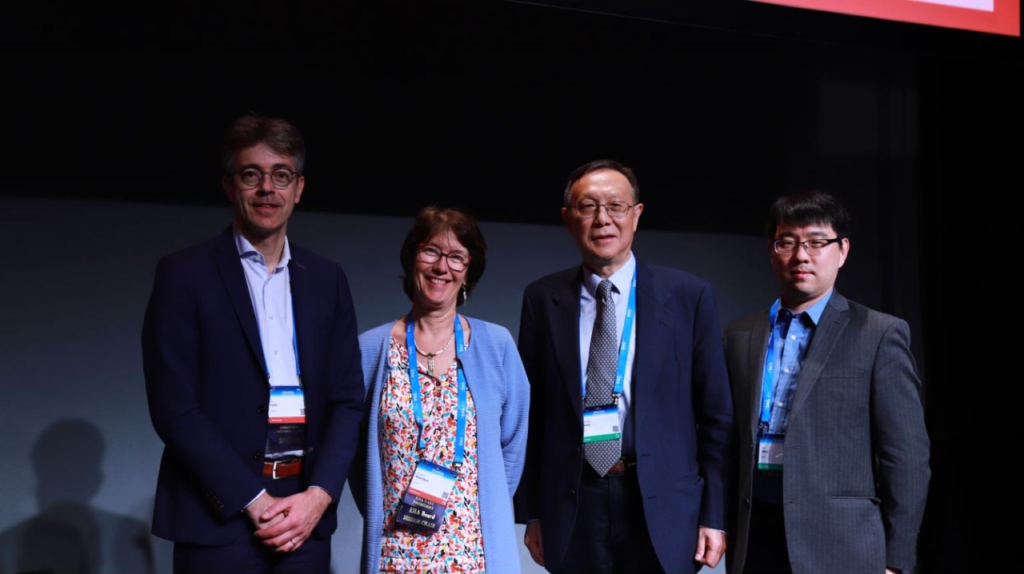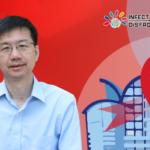
The 29th Annual Congress of the European Hematology Association (EHA) took place from June 13 to 16, 2024, in Madrid, Spain. Renowned as the “Olympics” of European hematology, the EHA Congress is celebrated for its cutting-edge scientific discussions and extensive clinical research findings, drawing global attention. Among the numerous highlights of this year’s event was the EHA-CSH Joint Symposium, which brought together leading experts from China and Europe to discuss the latest advancements in T-cell acute lymphoblastic leukemia (T-ALL). Oncology Frontier – Hematology Frontier had the privilege of interviewing Professor Jianxiang Wang, co-chair of the symposium and Chief Clinical Expert at the Institute of Hematology & Blood Diseases Hospital, Chinese Academy of Medical Sciences, to share his insights on the event, key highlights of the EHA-CSH symposium, and his own research presentations and future directions.
Reinvigorating EHA: A New Chapter in Global Hematology Exchange
Professor Jianxiang Wang remarked, “As one of the world’s most influential academic organizations, the European Hematology Association (EHA) holds its annual congress every year. Over the years, the EHA Congress has evolved from a small gathering to a large-scale event with significant international impact. This year marks the second in-person congress since the COVID-19 pandemic, attracting scholars from around the world, particularly from Europe. Many Chinese scholars also actively participated and showcased their research. The EHA Congress has truly become a vital global platform for academic exchange in hematology, bringing together global elites for in-depth academic discussions that have garnered widespread attention.”

EHA-CSH Collaboration: Advancing T-ALL Research and Development
Professor Wang highlighted, “This year’s congress featured a joint symposium between the Chinese Society of Hematology (CSH) and EHA, a collaboration model established years ago through a memorandum of understanding between the two societies. In recent years, similar joint sessions have been held at the EHA Congress, previously focusing on topics like hematopoietic stem cell transplantation and CAR-T therapy. This year, the focus was on T-cell acute lymphoblastic leukemia (T-ALL).

European experts shared their latest progress in basic and translational research, including insights into the pathogenesis, developmental hierarchy, and clonal evolution of T-cells, and how these findings influence treatment strategies. On the Chinese side, Professor Xu Yang from the First Affiliated Hospital of Soochow University presented advancements in T-ALL treatment, including new drug applications, changes in the efficacy of hematopoietic stem cell transplantation, and differences in outcomes among various types of transplants. He also discussed new progress in CAR-T therapy in China, especially the significant efficacy of CD7 and CD5 CAR-T therapies in treating relapsed/refractory adult T-ALL. These CAR-T cells, regardless of their source, including donor-derived cells, have shown promising results, with CD7 and CD5 CAR-T therapies standing out. The symposium also explored the rational arrangement of these treatment methods, the necessity of further transplantation after CAR-T therapy, and the translation of basic research into clinical practice, which are of great concern to all participants.
Overall, the symposium had a clear theme, focusing on cutting-edge research and clinical treatment strategies for T-ALL, aiming to advance the field further.”

Innovative Achievements: New Breakthroughs in Leukemia Treatment and Future Prospects
Professor Wang shared, “At this year’s EHA Congress, we mainly discussed new advancements in leukemia treatment. Firstly, we introduced the latest results of an international multi-center Phase III clinical trial on the use of new drugs, particularly FLT3 inhibitors, in relapsed/refractory acute myeloid leukemia (AML). These data show that a potent inhibitor can significantly alter the disease’s course and improve patient survival, even in the single-agent era. Secondly, we reported the Phase I clinical trial results of a novel bispecific antibody. Preliminary data indicate that this new bispecific antibody has excellent pharmacokinetic properties and initial efficacy. Although these new studies are still in their early stages, they suggest potential future improvements in treatment efficacy in this field.
My research mainly focuses on leukemia. In the future, I hope to further elucidate the mechanisms of these diseases through basic research, discover treatable and actionable targets, and develop corresponding therapeutic interventions. Ultimately, we aim to validate these interventions through clinical trials to see if they can solve practical problems and improve clinical efficacy, especially the overall survival outcomes, which is our long-term goal and pursuit.”


